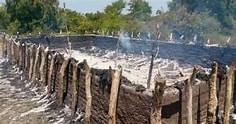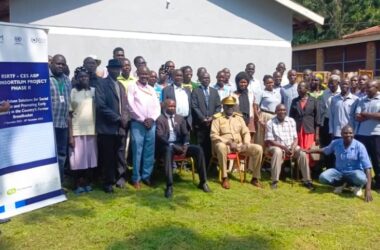By Taban Henry
A civil society activist on Monday said that the failure of the government to timely crackdown insecurity in the communities has seriously contributed to the looming food insecurity in the country.
Activist Edmund Yakani Executive Director for Community Empowerment for Progress Organization revealed the statement on Monday as a response to the United Nations report on food security.
According to the latest Integrated Food Security Phase Classification (IPC) analysis, climatic shocks, conflict, economic downturn, displacement and disrupted livelihoods are driving the worsening trend in food security with 7.74 million people across the country slated to face crisis or worse levels of acute food insecurity during the lean season between April and July 2022.
Food insecurity is likely to raise by seven percent across South Sudan in the coming months, compared to last year, a United Nations report on food security noted amidst calls for more humanitarian and livelihoods assistance to avert looming hunger and enhance resilience. It said more than 80 percent of the entire food-insecure populations are from Jonglei, Unity, Upper Nile, Lakes, Eastern Equatoria and Warrap states.
In a statement released to the media on Monday, Edmund Yakani stated that the failure of some government authorities in timely handling insecurity in the communities has seriously contributed to rising food insecurity.
“The continued food insecurity is having direct implication on the process of securing peace and stability. Genuine political decision from the top leadership of the country is urgently required. Among the key genuine political decisions urgently required are; unifying of the armed forces of the various groups across the country; prevention of the armed deadly communal violence; investing sound funds for mitigating climate shocks and prevention of conflicts over the use of land between farming and cattle grazing,” Yakani said.
He added that the alert on the rise of food insecurity by 7% is a grave threat to human lives and society growth. Food insecurity solutions are made possible through genuine top political leadership decisions.
Recently the Intergovernmental Authority on Development’s (IGAD) Climate Prediction and Applications Centre (ICPAC) announced that heavy rains could fall over East Africa in the months of March, April to May (MAM) seasons. Eastern South Sudan will witness increase in the amount of rain while Western South Sudan will witness drop in the amount of rain. The national authorities such as South Sudan Food Security Council (RSSFSC); Ministry of Agriculture and Food Security; National Legislative Assembly outstanding committee on Agriculture and other relevant national institutions should urgently hold national food security conference within the month of May, 2022. This conference should be treated essential by the top leadership of the country.
The Executive Director (CEPO) is urging the National Parliamentary outstanding committee on Agriculture to seek official briefing from UN Agencies namely FAO, WFP and UNICEF on the latest Integrated Food Security Phase Classification (IPC). The briefing should lead to the national legislature holding urgent session on alert raised on 7% increase in food insecurity in some parts of the country. The parliamentary engagement is essential for genuine decision making for responding to the alert raised on 7% in food insecurity.
“CEPO will continue advocating and lobbying the national parliament for some action on the provided alert on 7% rise in food insecurity in some parts of the country from April to July 2022,” the statement added.



